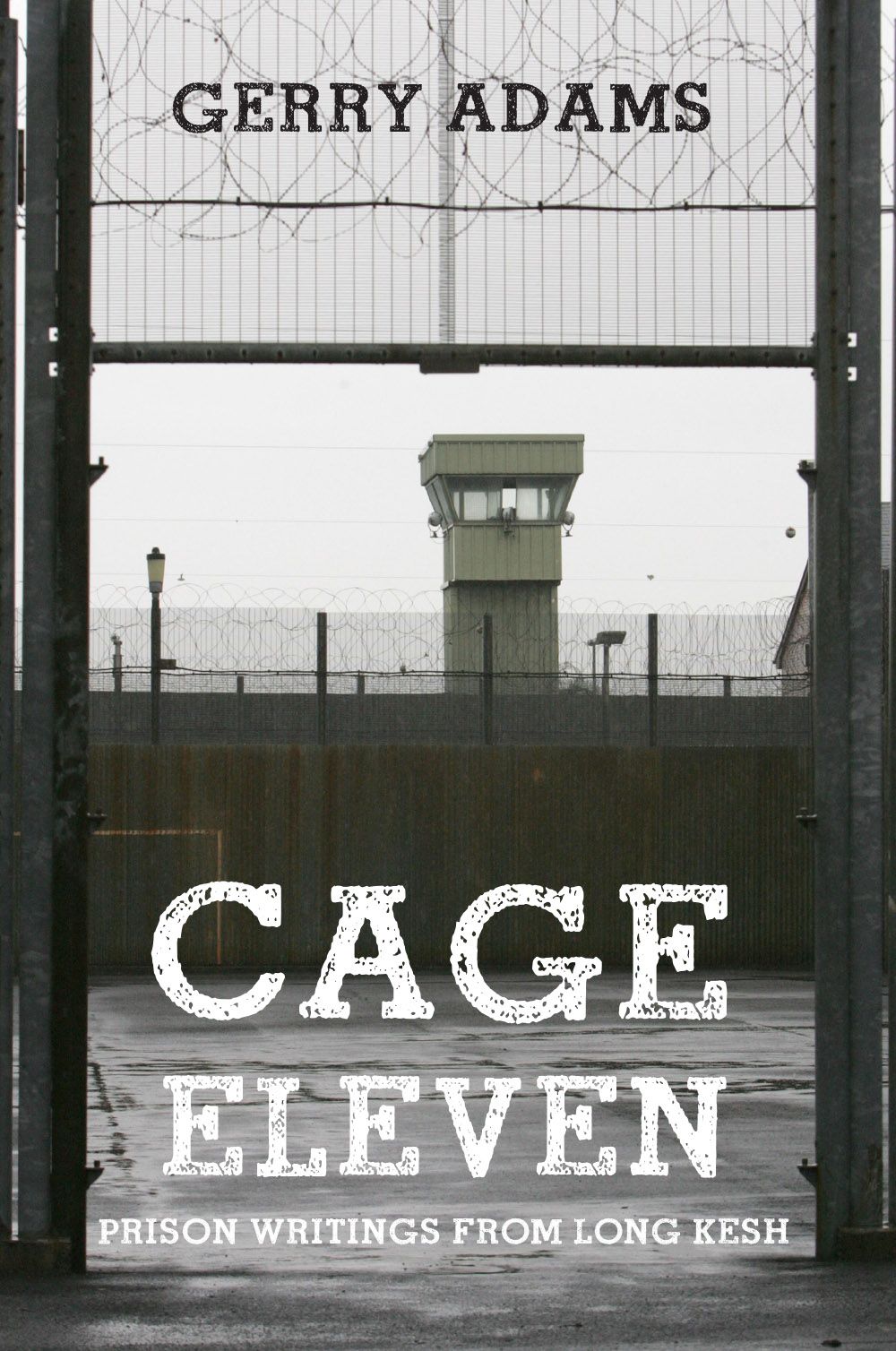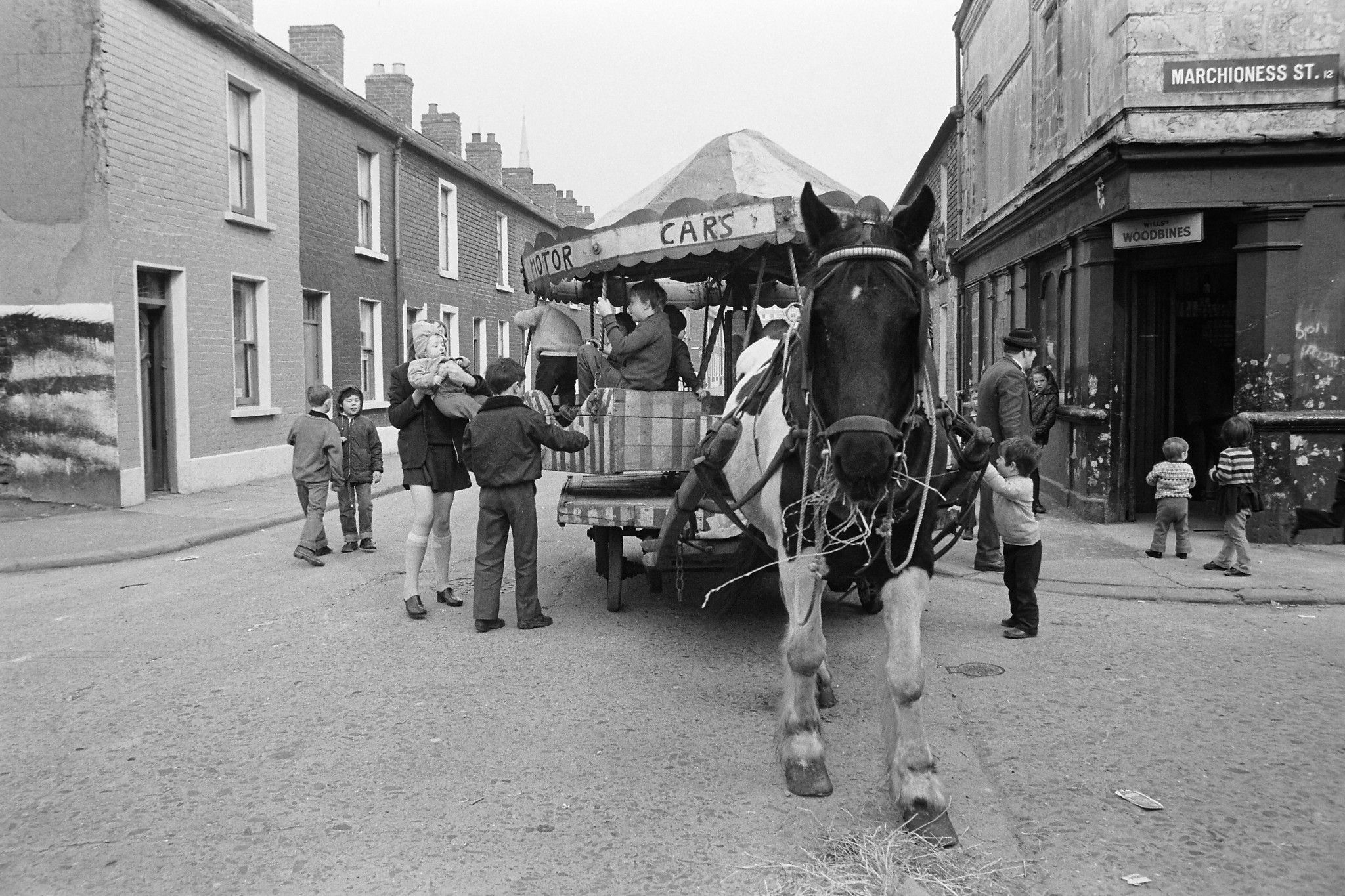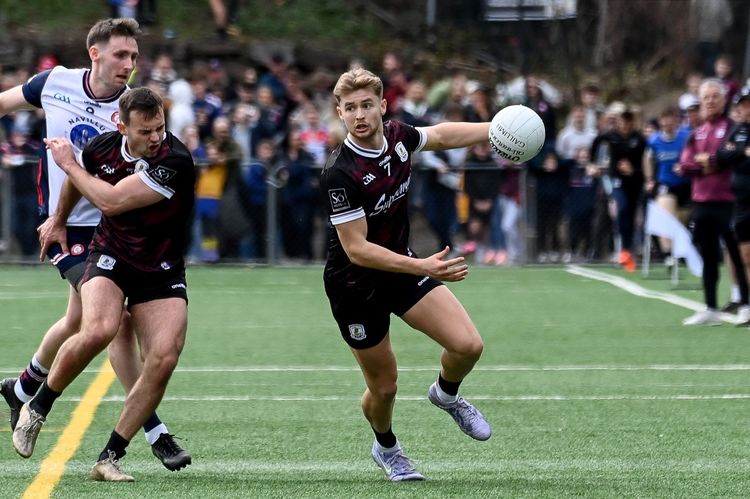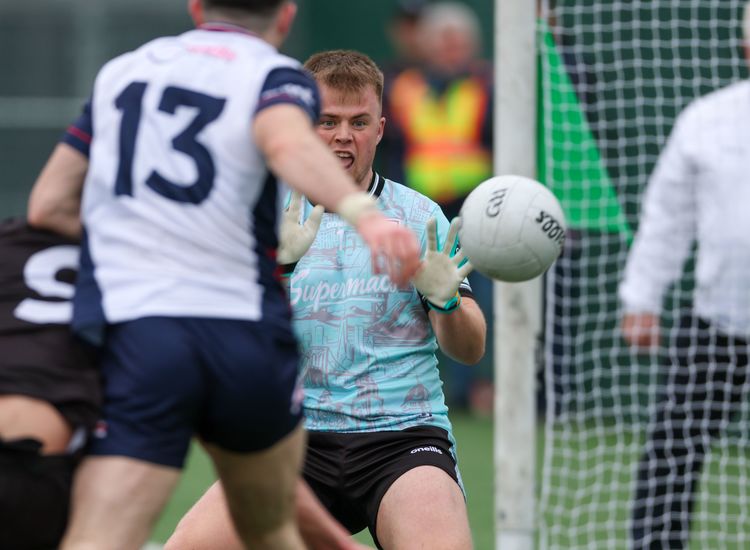I REMEMBER Father Des Wilson many moons ago lamenting the narrowness of streets in Turf Lodge and Ballymurphy. “The City Planners don’t think the working class should have motor cars,” he said one day as we tried to manoeuvre our way by tightly-packed vehicles in Ballymurphy Drive.
There was a time when there were very few cars on our streets. When I was a child the street was our playground. We played handball at Harbinson’s gable in Abercorn Street North, or shootie-ins at the other corner down towards Sorella Street using an old sock stuffed with newspapers as a ball. Or Rally-Oh and Kick the Tin, marlies, street soccer, hurling and rounders. Quoits. Cribby. Up and down and across the street. Sometimes we gathered up a wee gang and fought running battles with wee bucks from Getty Street. Girls played hop-scotch, skips, numerous and intricate games with handballs, while reciting or singing street songs and skipping rhymes. Ropes were draped from the old gas lamps and utilised as swings, even though yards away the Dunville Park had more conventional swings for us to play on.
Cars were a novelty. Coalcarts, the baker’s van, the milkman, the hobby horse man, the ‘reg’ man and the refuse collector made up most of our traffic. Trams and later trolley buses were restricted to main roads. So the streets were safe. Occasionally if we were too noisy or if our ball hit a neighbour’s window or door we were rebuked with ‘Why don’t youse go and play at your own door?’ We always paused play when women were passing. ‘Hold the ball.!Hold the ball’! was the usual cry until the passers-by passed by.
Nowadays it is rare to see children playing in the streets. There isn’t space and some drivers don’t slow down as they should. So it’s dangerous. Too many cars. Some communities are lucky. They have play parks which are always packed with screaming, running, yelling, jumping, squealing weans. All enjoying themselves. And all our sports clubs and youth clubs and leisure centres are really well used. As they should be. And our glens and hills are well walked. Filled with fun and adventure. Places in which the imagination can thrive. We probably can’t legislate for the excess of cars in our streets. But we can be more careful about how we park them.
Cage Eleven mark two
THIS coming weekend O’Brien Press are republishing my book – Cage 11 - about my experience of life in Long Kesh between August 1975 and February 1977. Cage 11 was first published in 1990. By that time the Cages of Long Kesh were empty of political prisoners. In their place the British had built the H-Blocks and embarked on a ruthless prison policy that resulted in the 1981 hunger strike.
The stories contained in Cage 11 reflect the trials and tribulations, as well as the escapades that were then a part of our lives, of our families lives and of our community. Get a couple of ex-POWs together and they will joke and backstab, laugh and reflect on the meaning of life while talking politics. And so it was within the barbed wire Cages of Long Kesh.

The bulk of Cage 11 is drawn from articles which were smuggled out of the cages and published, under the pen-name ‘Brownie’. I was one of a small number of Long Kesh POWs who contributed to the weekly column in which we wrote, sometimes none too fluently, about a litany of issues that caught our attention.
For the first time this new edition contains some drawings by Danny Devenny, a long time resident of Long Kesh, who went on to become one of our best known, pioneering and leading mural artists.
Almost 35 years later the Cages and the H-Blocks are gone. Armagh Women’s Prison lies abandoned and Crumlin Road prison is now a tourist attraction.
Cage 11 is formally scheduled for publication on Monday, November 4 and will be available from most good bookshops including from www.sinnfeinbookshop.com and An Fhuiseog, 55 Falls Road, www.thelarkstore.ie
Sanction Israel now, Taoiseach
IN April 2009 as part of a Sinn Féin delegation I entered the Gaza Strip. The blockade of the area by Israel was two years old at that point. The UNRWA staff, school teachers, doctors, university students, elected representatives and workers we met were dignified and courageous, quiet but resolute. They were the survivors of an Israeli siege and a military incursion in 2008/09 that had left many dead and key facilities devastated.
From the minute we passed through the Erez Crossing into Gaza under the gaze of Israeli watchtowers and the huge security wall that surrounds the enclave my overwhelming sense was of entering into a huge open air prison.
Today I am horrified at what continues to unfold each day in that place. The Gaza City I saw 15 years ago is gone. It doesn’t exist now, having been reduced by US-supplied bombs and shells into piles of rubble. They have become headstones for the many still buried beneath them. The people who survive are being deliberately starved. The ethnic cleansing of Gaza, and at this time of northern Gaza, by the Israeli military and the forced displacement of an impoverished people are a stain on the world.
Thousands of refugees are being forcibly shifted from one part of Gaza to another by a ruthless and intolerant enemy. There is now no health service in northern Gaza. The last operational hospital was occupied by Israel forces late last week. Doctors were arrested. Seriously ill patients had to be moved or face murder by Israeli forces who destroyed all of the sparse drug stocks the hospital had.
B’Tselem is a prominent Israeli human rights group. In recent days it has said that the Netanyahu government is committing what it describes as some of the gravest crimes under the laws of war. It reported that hundreds of thousands of Palestinian are “enduring starvation, disease without access to medical care and incessant bombardments and gunfire” and that Israel has “cut them off from the world”.
Calls for a ceasefire are rejected by the Israeli government. The overwhelming demand of the international community for Israel to stop is ignored. Why should Israel halt its genocide when its allies in the British and American governments defend its use of mass murder? Why should Israel worry when those same allies refuse to stop supplying it with the weapons of war?
The demand now must be for sanctions against the state of Israel. In particular, the Irish government which eventually recognised the state of Palestine, must now take the next steps needed to defend and uphold the democratic right of that state to exist.
Mary Lou McDonald has written to An Taoiseach Simon Harris to ask him to work with the opposition in the Oireachtas to ensure that the Occupied Territories Bill can pass into law before the general election is called. This would be a landmark sanction that would set an example to others around the world. The Sinn Féin leader has requested that the Select Committee on Foreign Affairs and Defence be convened next week to allow this legislation to be swiftly processed before the general election campaign and the formation of the next government.
An Taoiseach should say yes. The people of Palestine need sanctions now against those who are trying to remove them, not just from Gaza, but from the face of the Earth.









